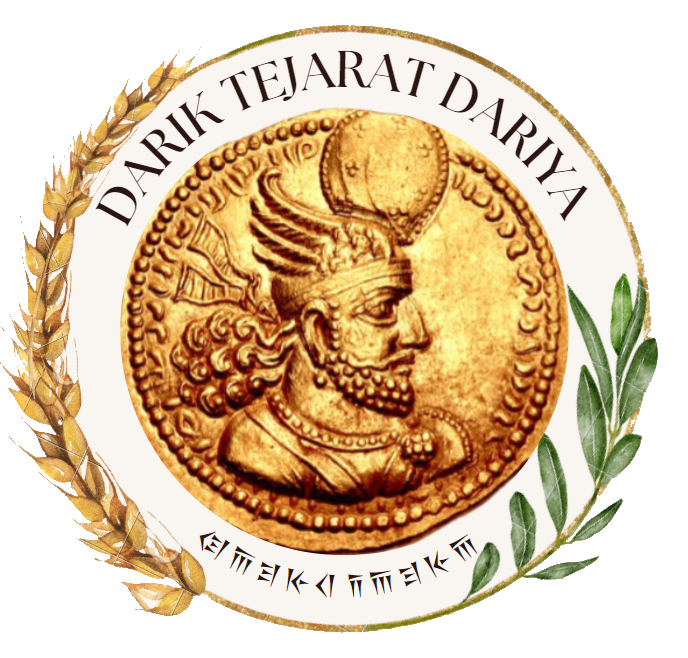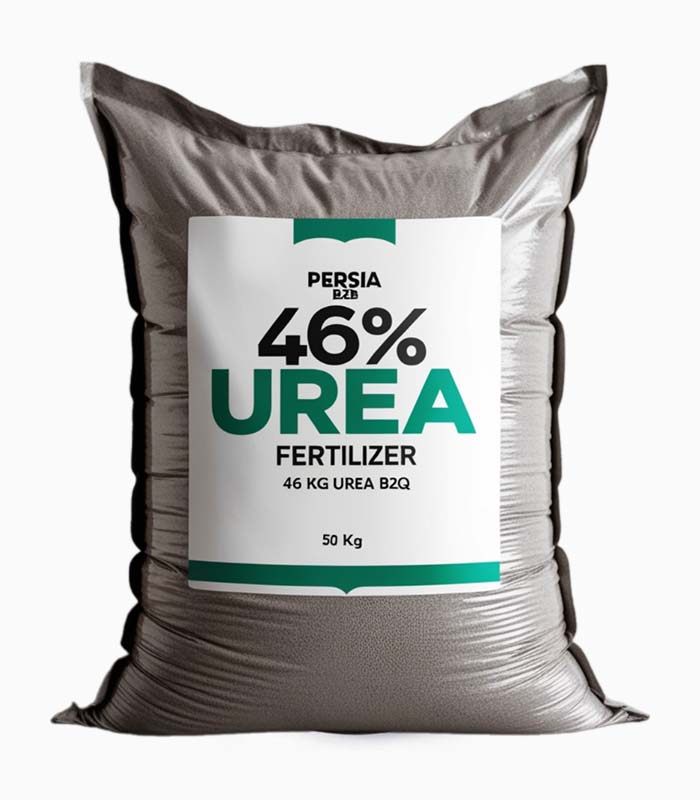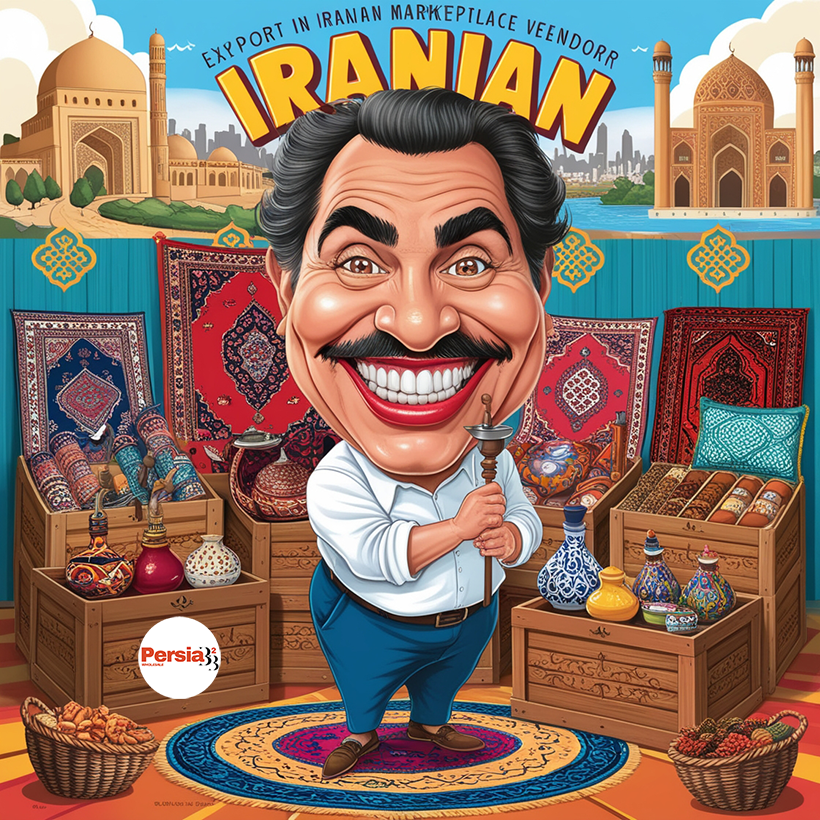Iranian Goods and Export Products
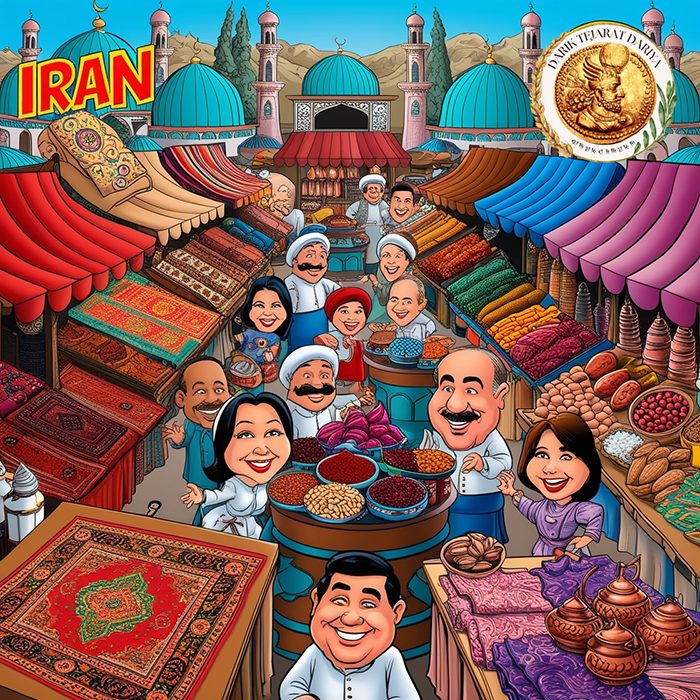
Iranian Goods and Export Products: How Quality and Right Pricing Increase Profits for Global Importers
- Overview of Iran’s Export Market: Brief introduction to Iran’s rich resources, competitive industries, and the growing appeal of Iranian goods in the international market.
- Value for Importers and Traders: Emphasis on how quality Iranian products at the right prices provide importers with high profit potential.
- Introduction to Darik Tejarat Dariya: Introduction of Darik Tejarat Dariya as a premier facilitator for sourcing authentic Iranian goods, ensuring competitive pricing, quality assurance, and efficient communication with suppliers.
1. Key Iranian Export Products: Competitive Sectors with High Demand
1.1. Oil and Petrochemical Products
- Iran’s Role in Oil Exports: Description of Iran’s position as a major oil exporter and its range of petrochemical products.
- Popular Petrochemical Exports: List of high-demand products, such as methanol, urea, and polyethylene.
- Benefits for Importers: How sourcing petrochemical products from Iran can meet international quality standards and provide cost advantages.
1.2. Agricultural Products
- High-Quality Agricultural Goods: Overview of top agricultural exports such as saffron, pistachios, dates, and raisins.
- Unique Selling Points: Explanation of why these products are prized globally for their quality and flavor.
- Pricing and Profitability: Insights on how Iranian agricultural products offer attractive pricing without compromising quality, boosting profit margins for importers.
1.3. Handmade Goods and Crafts
- Artisanal Heritage: Description of Iran’s rich tradition in handicrafts, including Persian carpets, pottery, and metalwork.
- Why Iranian Handicrafts Stand Out: Explanation of their uniqueness, cultural value, and demand in global markets.
- Profit Potential: How importers can capitalize on the premium value of Iranian crafts, especially in markets appreciating artisanal goods.
1.4. Industrial Products and Minerals
- Diverse Industrial and Mineral Resources: Overview of Iran’s export capabilities in minerals, including copper, zinc, and iron ore.
- Demand in Global Markets: Explanation of why these resources are essential for industries worldwide and Iran’s competitive edge in supplying them.
- Cost Efficiency and Quality: How Iran’s mineral exports offer competitive prices and quality suitable for industrial applications.
1.5. Textiles and Leather Goods
- Growing Textile and Leather Industry: Overview of the textile and leather export market, focusing on quality and craftsmanship.
- Market Demand: Insights on international markets where Iranian textiles and leather goods are gaining popularity.
- Price Competitiveness and Profit Potential: How reasonable prices and quality increase profitability for traders.
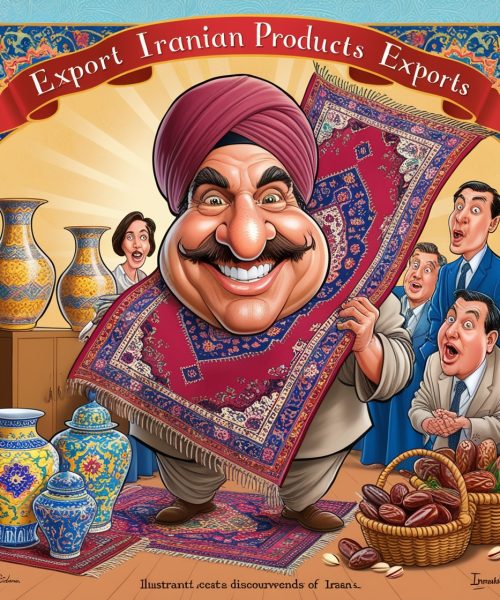
2. Why Iranian Goods are Profitable for Importers: The Value Proposition
2.1. Competitive Pricing
- Lower Production Costs in Iran: How Iran’s favorable economic conditions enable lower production costs.
- The Impact on Importers’ Profit Margins: Explanation of how competitive pricing allows importers to mark up prices in their domestic markets.
2.2. Quality Assurance in Key Sectors
- Standards and Certifications: Overview of the standards Iranian exporters meet for international markets.
- How Quality Enhances Marketability: The role of quality in ensuring repeat business and brand reputation for importers.
2.3. Unique Products Not Found Elsewhere
- Exclusivity of Certain Iranian Goods: How unique items like saffron, Persian carpets, and certain petrochemicals provide importers with exclusive products.
- Building Brand Value with Unique Products: Explanation of how these unique goods can differentiate importers in competitive markets.
2.4. Proven Demand in Global Markets
- Case Studies of Success in Major Markets: Examples of how Iranian products perform in regions like Europe, Asia, and North America.
- The Power of Niche Markets: Explanation of niche demand for Iranian crafts, spices, and agricultural products.
3. Challenges in Importing Iranian Goods and How to Overcome Them
3.1. Navigating Regulations and Compliance
- Import and Export Restrictions: Overview of potential regulatory challenges.
- Working with Experienced Brokers: How intermediaries can streamline compliance and logistics.
3.2. Ensuring Authenticity and Quality
- Identifying Genuine Suppliers: Tips for avoiding counterfeit products.
- Importance of Quality Assurance Services: Explanation of how third-party verification can ensure quality consistency.
3.3. Logistics and Transportation
- Shipping Considerations for Iranian Goods: Overview of logistics, transit routes, and common challenges.
- Efficient Shipping Solutions: Tips on how to streamline the process with reliable logistics partners.
4. Darik Tejarat Dariya: Your Trusted Partner for Importing Iranian Goods
4.1. About Darik Tejarat Dariya
- Company Overview: Background of Darik Tejarat Dariya as a new but credible import-export company, founded in 2024.
- Membership in the Iran Chamber of Commerce: Importance of this membership as a sign of reliability and commitment.
4.2. Comprehensive Sourcing Services
- Direct Connections with Reliable Suppliers: How Darik Tejarat Dariya connects importers with trusted Iranian suppliers.
- Product Variety and Quality Assurance: Overview of product categories and the company’s emphasis on quality.
4.3. Pricing Transparency and Negotiation Support
- Assistance with Competitive Pricing: How Darik Tejarat Dariya negotiates favorable terms for importers.
- Transparent Contracts and Communication: Importance of clear communication and transparency in facilitating successful transactions.
4.4. Quality Assurance and Compliance
- Ensuring Product Quality: How Darik Tejarat Dariya employs quality checks and guarantees authenticity.
- Compliance with International Standards: Overview of how the company ensures compliance with the regulations of the importing country.
4.5. Logistics and Delivery Solutions
- Streamlined Shipping Process: Explanation of how the company manages logistics for timely delivery.
- Support with Customs and Documentation: How Darik Tejarat Dariya assists importers in navigating customs processes.
4.6. Customer Service and After-Sales Support
- Dedicated Support Team: Overview of the company’s customer service practices.
- After-Sales Support for Importers: How Darik Tejarat Dariya ensures importer satisfaction even after transactions are completed.

6. The Future of Iranian Imports: Trends and Opportunities
6.1. Rising Global Demand for Saffron and Organic Products
Health and Wellness Trends: How health-focused products like saffron are gaining popularity.
6.2. Increased Demand for Sustainable and Handmade Goods
Artisan Goods and Sustainability: Why markets value handmade and sustainable products from Iran.
6.3. Expansion in the Textile and Leather Sectors
Growth Potential in Fashion Markets: How Iranian textiles and leather goods are penetrating fashion markets.
6.4. The Role of Technology in Streamlining Trade
Digital Platforms for Trade: The role of e-commerce and digital trade platforms in boosting Iran’s export capabilities.
